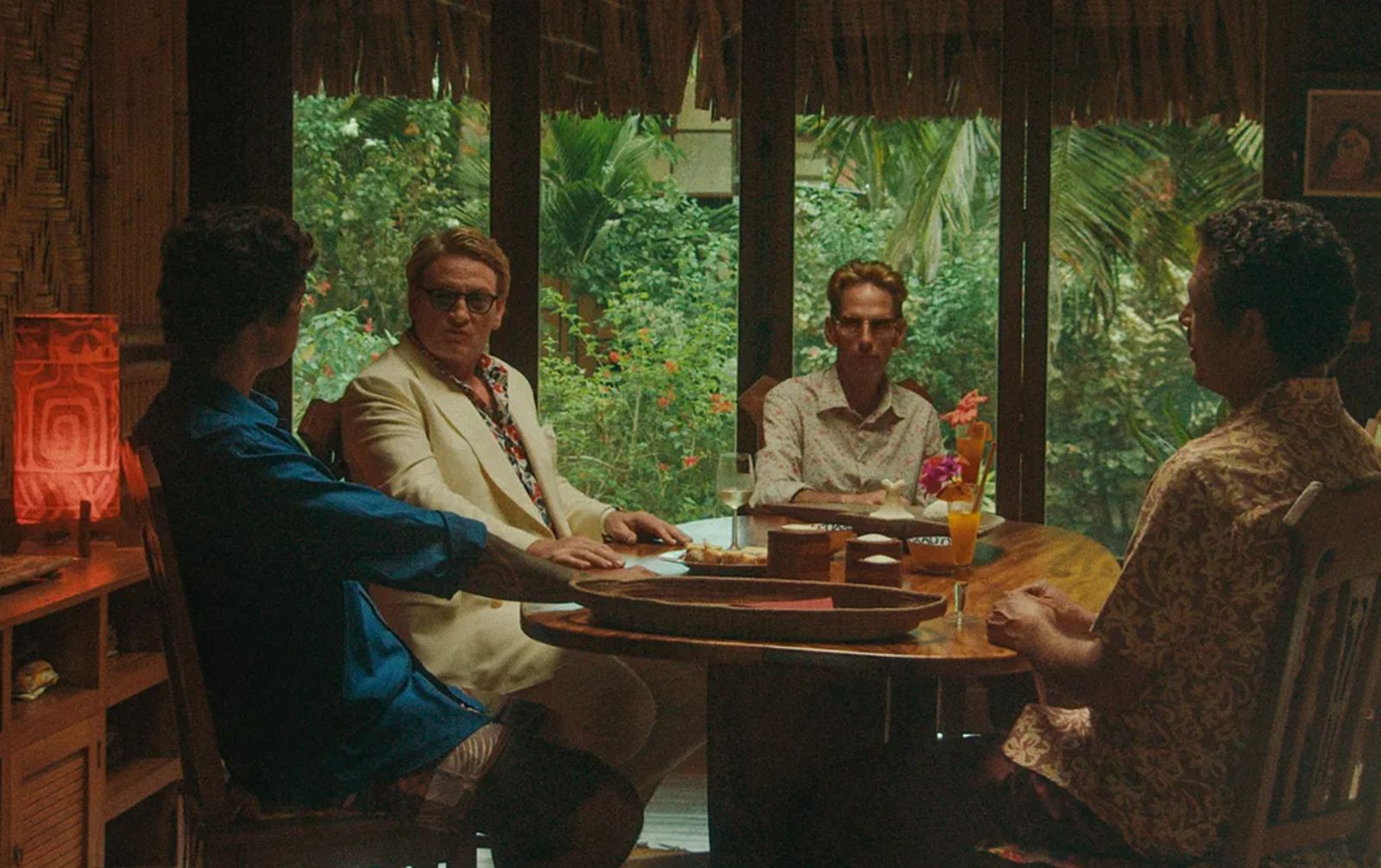Pacifiction is what Albert Serra might describe as an unfuckable movie. “Unfuckable is, you take the whole thing or you don’t take it but you cannot apply a critical judgment in an easy way,” he explained to us in 2019, “because it is what it is and it doesn’t look like any other film.” Pacifiction does not look like any other film. It doesn’t taste or smell like other films, either, even Serra’s own distinctive body of work. It premiered in a Cannes competition that has been high on wattage but low on power, crying out for a sensation. Pacifiction is that sensation: a film unlike any other this year, appearing near the end of proceedings, with the festival’s final furlongs already in sight; it is the closest the selection has come to delivering a masterpiece.
For the best part of the last 20 years, the Catalan filmmaker has made radical, provocative films operating in the deliciously macabre sweet spot where history and mythology overlap: stories about Dracula and Casanova (Story of My Death), French libertines idly fucking in the woods (Liberté), the death of a King (Louis XIV), and no less than the birth of Christ (Birdsong). Pacifiction is his first to come anywhere close to the present day. It follows High Commissioner De Roller (Benoît Magimel, slick and mannered in graphite-blue tinted sunglasses), a representative of the French state on the island of Tahiti in French Polynesia.
As Pacification begins, De Roller is attempting to get plans together to build a casino but becomes paranoid at rumors that a submarine is close by. During one of the film’s miraculous sunsets he appears to spot one peeking above the water. Will nuclear testing in the region resume? Navy men have started frequenting the local nightclubs and a mysterious man with a British accent and slicked back hair is on the prowl. The mood is feverish, dreamlike, and little is explained.
Outside of these anchoring points, the plot is as seductive as it is elliptical: it has all the hallmarks of a film that demands multiple viewings, though I feel its deepest mysteries may remain buried. Serra’s interests are as cosmic here as they are political. Between 1966 and 1996 the French government tested close to 200 nuclear weapons near islands Southeast of Tahiti. Accusations that they covered up the actual radiation figures persist to this day. De Roller says that there hasn’t been a test in 20 years, positioning the film a little in the past, though this hardly matters.
It is, in some ways, Serra’s most accessible work: aside from one bracing moment, sex in Pacifiction is implied rather than explicated (the nightclub sequences buzz with homoeroticism, as beefed-up men in white underwear serve drinks); and there is none of the bodily grotesque we saw in Louis XIV. The characters feel lonely, if not in all-out existential despair—though there is a rather sweet romance between an admiral (Marc Susini, entrancing in a weird turn) and a dancer (transgender performer Pahoa Mahagafanau, even better.) Pacifiction draws you in with its sense of mystery and surrealism and leaves you ultimately agog.
Though that interview in Thessaloniki lasted a meaty 45 minutes, I opened my mouth only a handful of times—Serra likes to talk, and he has a lot to say. Conversations in his work can feel like they go on forever: meditations on philosophy and politics that can be a struggle to grasp but can culminate in a trance-like way, thanks in large part to the calm manner in which his actors deliver them—characters are far more likely to whisper than to shout. His signature three-camera setup, positioned so that the actors never know which one to play to, only adds to this sense of strange hypnosis. Pacifiction can look like a Robert Altman film, but Serra’s cameras are placed so far away as to give the sense of a voyeur.
Pacifiction opens on one of the fevered nightclub scenes before spending close to an hour in such sleepy dialogues, De Roller meeting various locals and politicians, dissuading concerns about his planned developments. Only then does Serra play his greatest card: an epic sequence where De Roller rides out on a jet ski and finds a small armada of boats waiting for a giant sweeping wave to pass. (It could be a moment from Avatar, but somehow it’s real.) Later moments in the club and another at a football stadium, drenched in rain and under glaring floodlights, go beyond boilerplate Lynch and Mann imitation and into confounding new territory.
Shot digitally by Artur Tort in gorgeous fuzzy pastels, the aesthetic leans into its postcard-paradise setting’s beauty and darkness without a hint of irony. Serra’s vision ultimately is as beguiling as it is boundless, and strangely romantic. There are things being said here about Europe, about loneliness, about our fragile planet, but grasping it all might not be the point. Serra is an incredible filmmaker and this is his most wildly expressive project yet. It is a unique piece of cinema, the most unfuckable of the year.
Pacifiction premiered at Cannes Film Festival.

